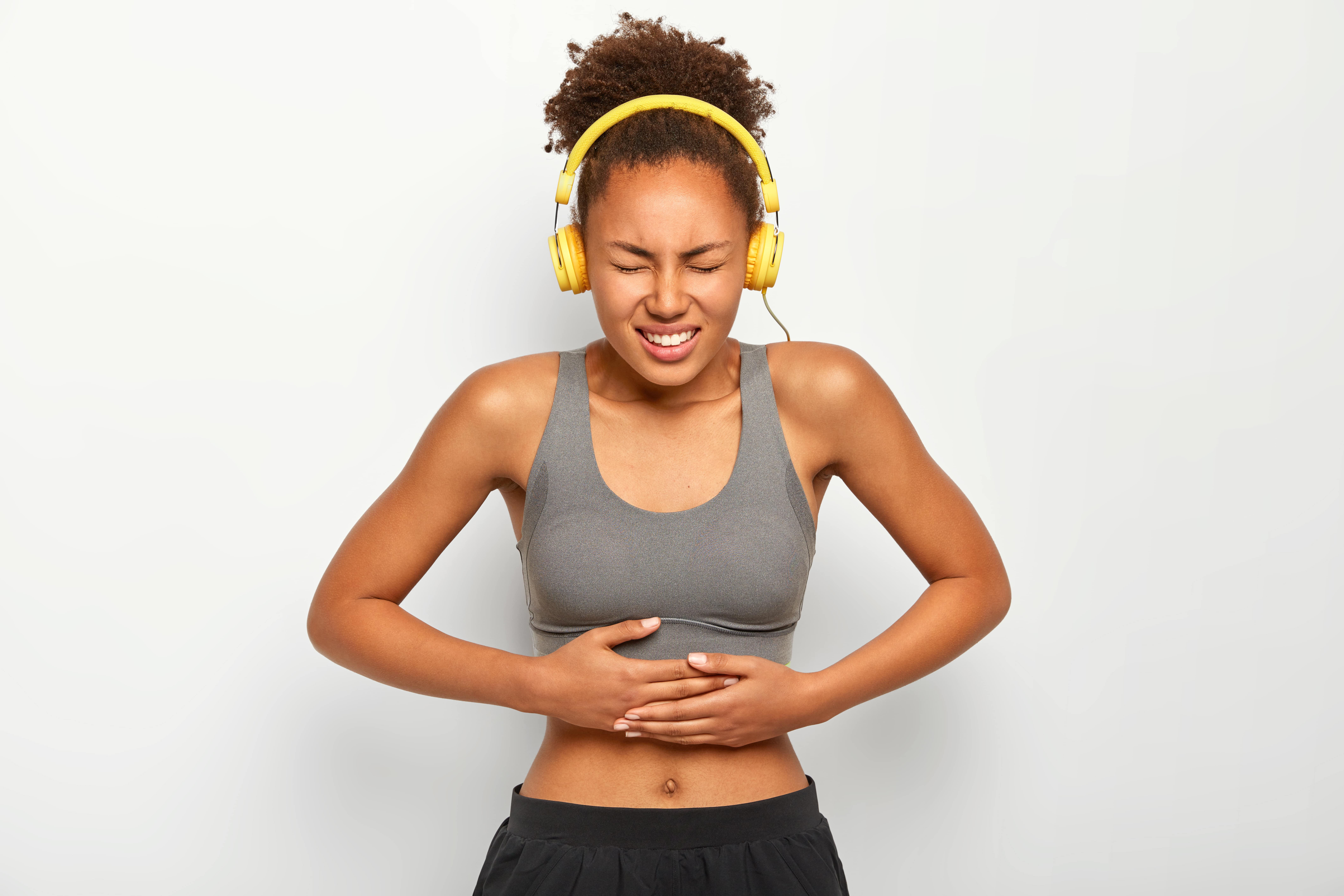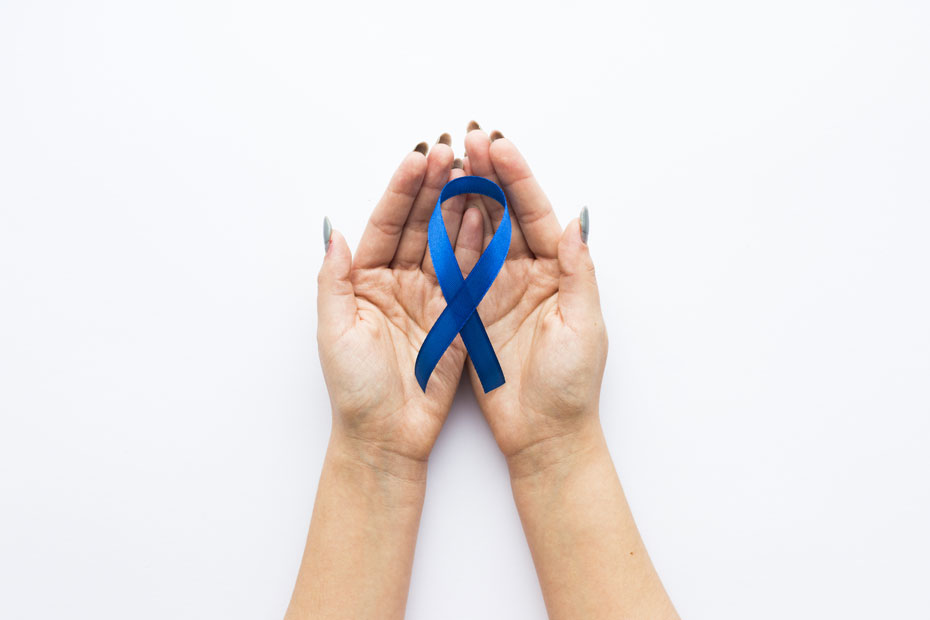
The 9 foods that help prevent cancer
27 May 2022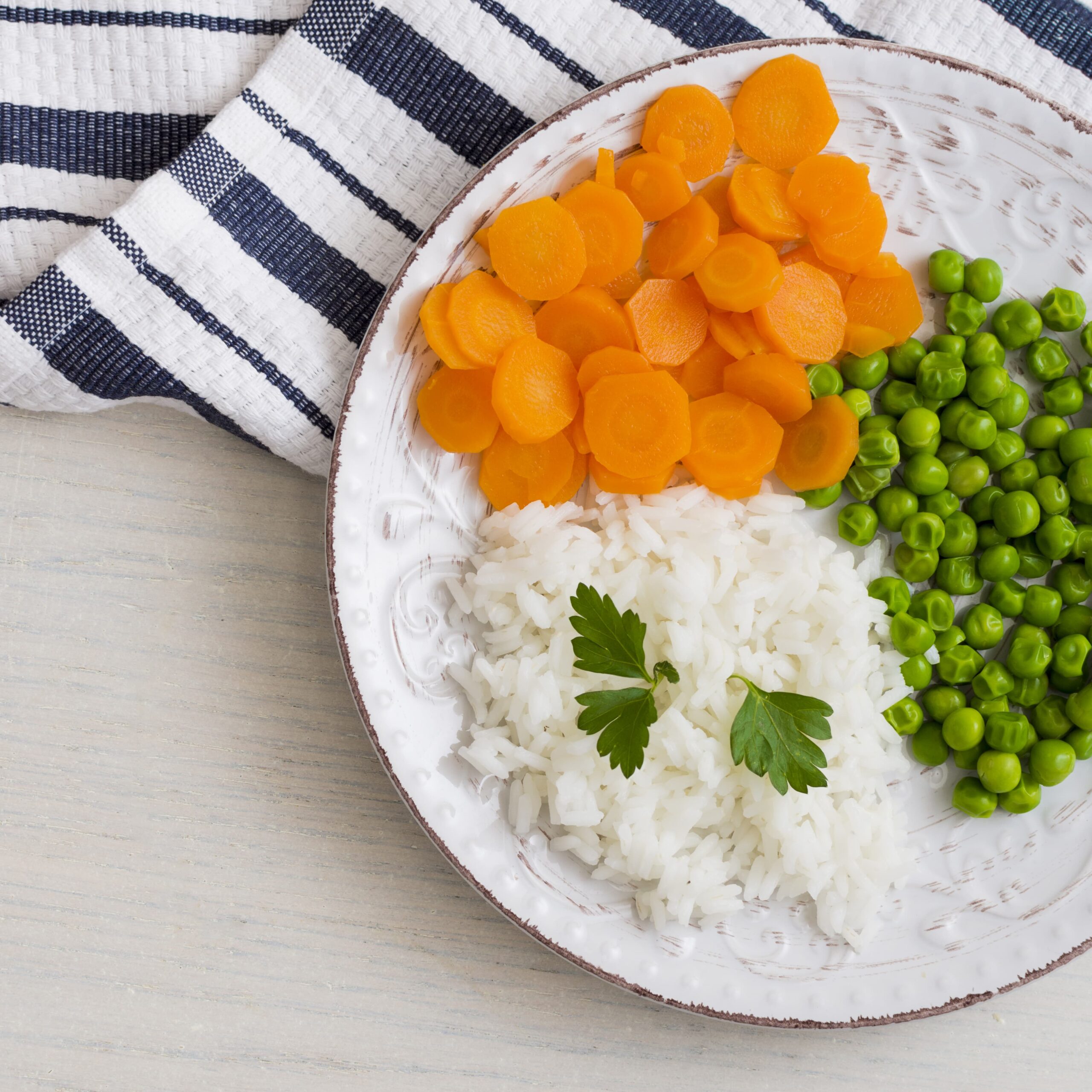
What to eat in case of diarrhea? 7 foods to firm up stools.
18 October 2023All articles on this blog are written in collaboration and with the supervision of health professionals from our gastroenterology center.
Exercise-induced nausea is completely normal. It can be caused by the sympathetic nervous system, excess lactic acid, or other causes. The DDG center explains everything about the origin of nausea and the urge to vomit during exercise. But above all, discover in this article how to avoid vomiting during and after sport!
What causes vomiting during and after a workout?
There are two scientific explanations for the onset of nausea and vomiting during and after exercise. The first concerns the oxygen restriction of the gastrointestinal area that occurs during the practice of intense physical activity. And the second concerns the large amount of lactic acid produced after the sports session. Focus on these two processes.
Nausea and vomiting during sport
When practicing a sports activity, the body needs more oxygen to function. Especially in the heart, active skeletal muscles, brain, lungs and skin. To meet this urgent need, blood flow will increase in the working muscles.
At the same time, a decrease in blood flow occurs in parts of the body that do not require priority oxygen supply, in other words: inactive areas. These include: the stomach and gastrointestinal tissues.
The sympathetic nervous system is at the origin of this phenomenon of diversion of blood. To achieve this, certain blood vessels located in inactive regions will be narrowed. This action is called: vasoconstriction process.
To know! When playing a sport, the sympathetic nervous system redirects up to 80% of our blood circulation!
However, a conflict appears if during the practice of a sports activity the stomach is in the process of digestion. In effect :
- on the one hand following a meal, the nervous system receives the signal to increase blood flow to the muscles of the stomach
- and on the other hand, the urgent need for oxygen of the skeletal muscles causes the decrease in blood flow in the gastrointestinal region
Consequently, an alteration in the ability of cells to absorb digested food appears. As well as the passage of decomposed food in the intestine. In the end, the intestinal nerves are activated and nausea appears. This phenomenon is all the more intense if the meal consumed was rich in concentrated carbohydrates or fat.
Thus, we understand that eating just before exercising can cause nausea and the urge to vomit.
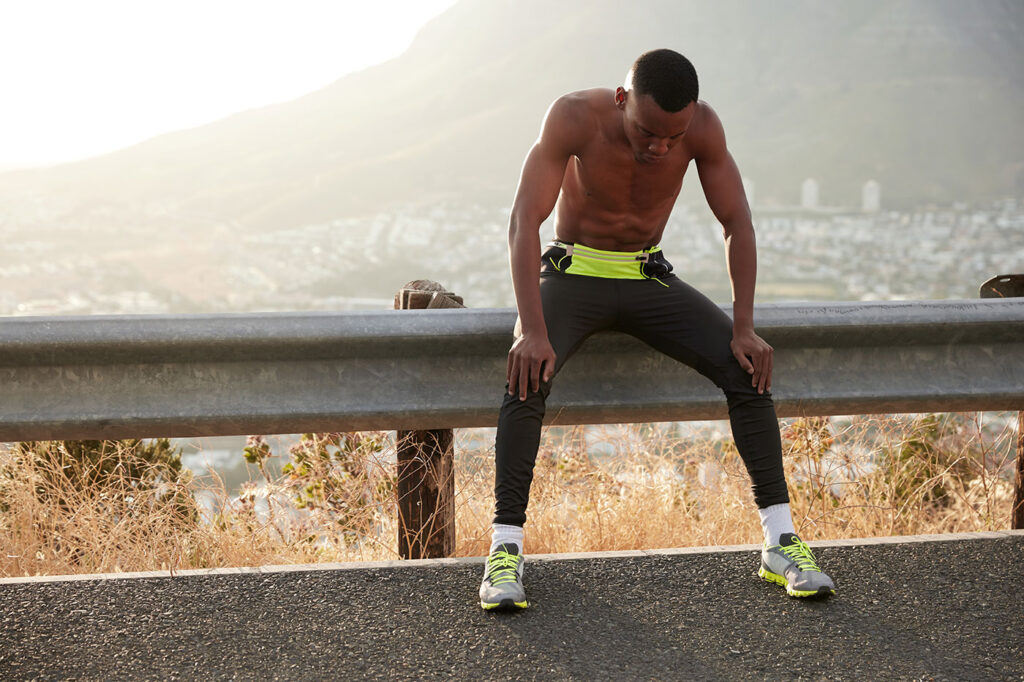
Vomiting after sport: lactic acid implicated
As seen above, during the practice of intense physical effort, the need for oxygenation of the muscles increases considerably. On the other hand, once the muscles relax, and rest, the body produces a significant amount of lactic acid.
As a general rule, the liver is responsible for recycling this acid. However, the quantity produced is far too high for the liver to support it. Consequently, all the lactic acid is released into the blood, causing nausea.
In addition, the body that detects this excess acidity in the blood decides to evacuate it through vomiting.
Other Causes of Nausea and Vomiting After Exercise
The water
Starting a workout while dehydrated won’t do you any favors. Indeed it is essential to stay well hydrated before, during and after a sports session. Otherwise, the thirst you feel will cause you to drink too many liquids all at once. And therefore vomiting will be inevitable!
Too intense session
When you decide to take up sport, it is important to do it gradually. A novice who exerts too much effort will suffer various digestive disorders.
Motivation can sometimes push us to force too much from the start of the session, and that’s a bad thing because nausea appears immediately!
This situation arises in particular during the practice of high-intensity exercises such as HIIT (High Intensity Interval Training).
Various factors that also cause nausea and vomiting during sports activities
There are also other factors that cause nausea and vomiting during the practice of a sports activity:
- poor breathing: the increase in ventilation during the practice of a sport amplifies the amount of gaseous content present in the upper digestive tract
- taking certain medications: anti-inflammatories and cortisone
- hypoglycemia: practicing a sport for a long time (more than 2 hours) causes a drop in blood sugar levels
- compression of the organs of the gastrointestinal system: some exercises require compression of the diaphragm
Important! Through this first chapter, we understand that there are several origins to the nausea that appears during the practice of a sport. Therefore, if you want to identify the cause that is responsible for your discomfort, you will have to go through a process of self-experimentation: find out what you tolerate, what worsens your condition and what improves it. Each person is unique and we all react differently.

How to avoid vomiting during or after a sports session?
Depending on the causes behind the onset of nausea and vomiting, discover the solutions that will allow you to avoid any discomfort during and after sport.
How and when to eat to avoid vomiting during and after sport?
As we saw in the first part of this article, it is important to avoid being in full digestion when practicing a sport. Therefore, to avoid any gastrointestinal discomfort, it is essential not to eat 1 to 4 hours before your sports session.
Consuming a hearty meal, too rich, or too fatty before a sports session is therefore to be banned!
If you must eat, choose foods that you are used to eat, foods that are easy to digest and energizing such as:
- high quality carbohydrates
- unsaturated fats
- etc
Including bananas, nuts, fruit compote, cereal bar, etc.
However, be sure to chew your food thoroughly and completely to facilitate and speed up the digestion process.
After the physical exercise session, it is important to eat to replenish your protein and sugar stocks (yogurt, eggs, fruit, etc.).
Breathing is also essential to have optimal oxygenation of the various muscles used during the practice of a sporting activity. Therefore it is necessary at all costs to avoid blocking your breathing in the effort. Instead, smooth and regular breathing will be much more beneficial.
Gradual recovery to eliminate lactic acid
To prevent the body from eliminating the lactic acid produced in too large quantities through vomiting, the most suitable solution is gradual recovery after exercise. This practice is called Return to Calm (RAC). It consists of the execution of a low-intensity jog over a period of 15 minutes. Thus, the body will be able to use this lactic acid without the appearance of nausea.
How and when to drink?
The optimal amount of liquid to consume during an activity is approximately ½ liter per ½ hour. Obviously this half liter will have to be divided into small rations in order to avoid overloading the gastric flow. And as a result the appearance of nausea.
According to Decathlon, water should be alternated with isotonic drinks that are similar in composition to body fluids. And this, in order to facilitate its assimilation. On the other hand, it is preferable to avoid hypertonic drinks because their digestion will cause intestinal disorders due to their concentration higher than our physiological concentration.
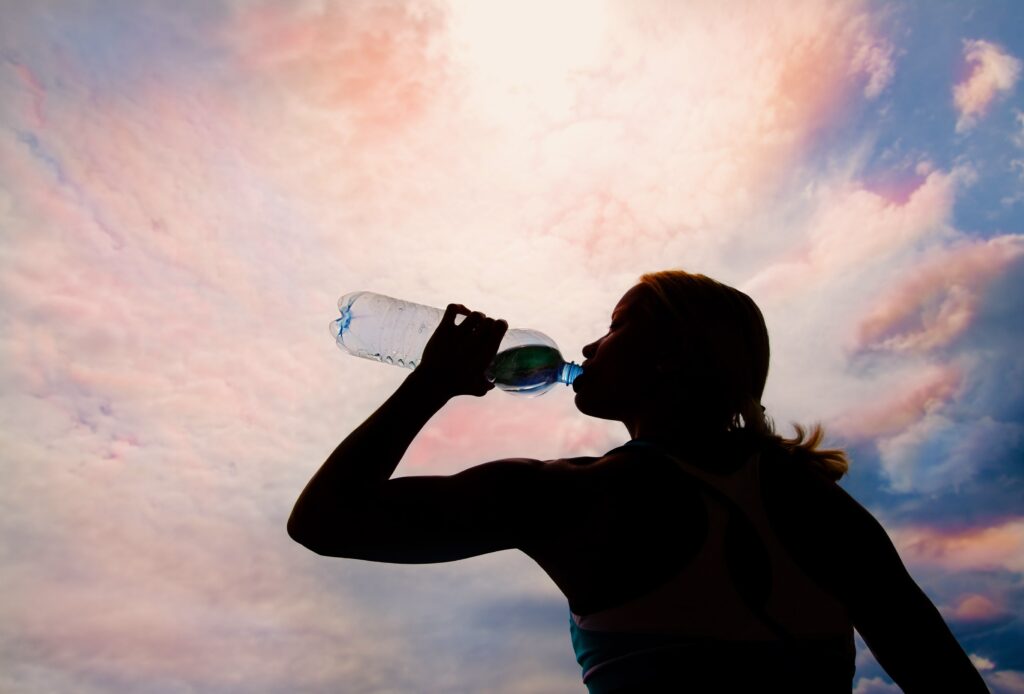
How to manage the intensity?
When practicing an effort, it is essential to moderate its intensity at the beginning, then to increase it gradually as it progresses.
Regular training therefore has preventive effects on the onset of nausea and vomiting.
Warming up is also essential to avoid sudden changes in your metabolism.
To know! The advice given in this article may vary from person to person depending on: each person’s metabolism, lifestyle, etc. Everyone has to do their own experiments and find their balance.
Not eating before sport: good or bad idea?
Do not eat before practicing a sport helps to avoid nausea and vomiting, but also to lose more quickly. This solution is ideal if you are overweight or obese because it is stored fat that is consumed. In addition, practicing a sport on an empty stomach allows you to burn twice as much fat as if you practiced it after breakfast.
Thus, some specialists recommend practicing a sports activity on an empty stomach. And this, in order to improve his general state of health. Subject, however, to not having diabetes and having consumed complex carbohydrates the day before.
What to remember from advice to avoid vomiting during or after a sports session
In this article, you learned that to avoid vomiting during and after a sports session you must:
- avoid being in the digestion phase when practicing physical activity
- breathe well during exercise
- do a cool-down exercise immediately after the end of the sports session
- be sufficiently hydrated before starting and drink small portions at a time
- do a progressive session
- avoiding medications that disrupt stomach activity
- avoiding exercises that compress the belly and stomach
- be on an empty stomach or eat light 1 to 4 hours before the start of the session
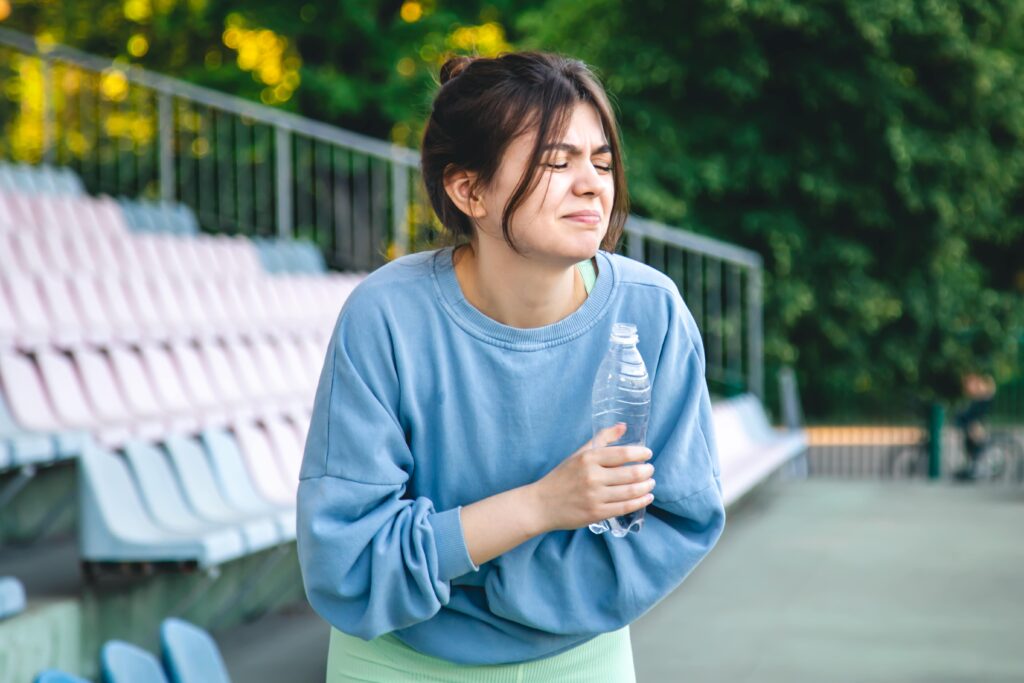
Managing Vomiting Issues During Sports Activities
Effectively managing vomiting during sports is crucial for athletes’ health and performance. Our experts at DDG Clinic in Brussels recommend staying hydrated, avoiding eating large meals before intense activities, gradually increasing the intensity of workouts, listening to your body’s signals, considering electrolyte solutions if necessary, and consulting a healthcare provider for recurrent episodes to rule out underlying conditions. For personalized advice and more details on how to manage vomiting related to sports, consult our specialists.
